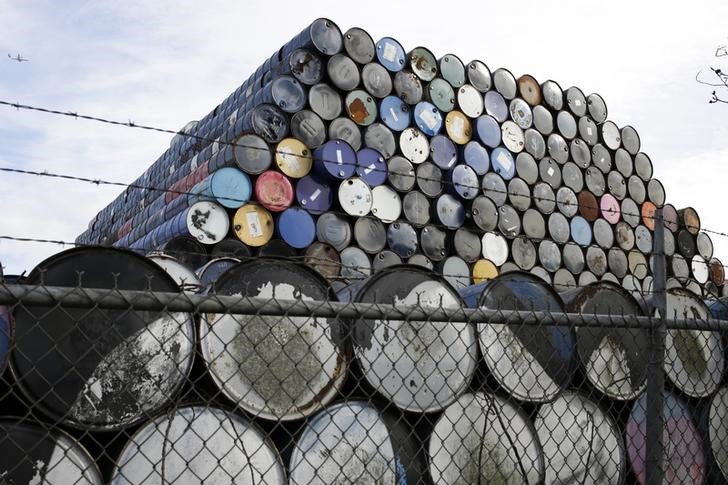Investing.com - Oil prices rose on Tuesday, with the U.S. benchmark hitting a more than one-week high as investors turned their attention to fresh data on U.S. commercial crude inventories to gauge the strength of demand in the world’s largest oil consumer.
Industry group the American Petroleum Institute is due to release its weekly report at 4:30PM ET (2030GMT). Official data from the Energy Information Administration will be released Wednesday, amid forecasts for an oil-stock decline of 2.9 million barrels.
U.S. West Texas Intermediate WTI crude was up 46 cents, or around 0.7%, at $66.56 a barrel at 4:10AM ET (0810GMT), the highest since June 1. Elsewhere, Brent crude futures inched up 56 cents, or roughly 0.8%, to $77.03 a barrel.
Optimism over U.S. President Donald Trump's meeting in Singapore with North Korea's Kim Jong Un also added to oil's gains.
Oil prices ended higher on Monday, getting a lift from signs of a deepening divide between OPEC members over whether to ease current production curbs.
Iraq's oil minister, Jabar al-Luaibi, warned producers against pumping more oil, claiming prices still needed support.
That helped oil prices bounce from earlier weakness, following reports Russia and Saudi Arabia had increased output.
Russian oil production reportedly rose by 150,000 barrels per day in the first week of June to 11.1 million barrels per day (bpd). That was above the country’s quota agreed in OPEC-led production agreement.
Saudi Arabia, meanwhile, increased production by more than 100,000 barrels a day in recent weeks. That saw Saudi output inched higher to about 10 million bpd.
The 1.8 million barrel a day production-cut agreement, first agreed in November 2016, between OPEC and non-OPEC members has rid the market of excess crude supplies, underpinning a move higher in oil prices.
OPEC is due to meet at its headquarters on June 22 in Vienna, together with non-OPEC member Russia, to discuss production policy.
Oil prices have been on the backfoot recently on concerns that OPEC and non-OPEC members led by Russia would decide to lift output by up to one million bpd as early as this month in reaction to lost supplies out of Venezuela and Iran.
